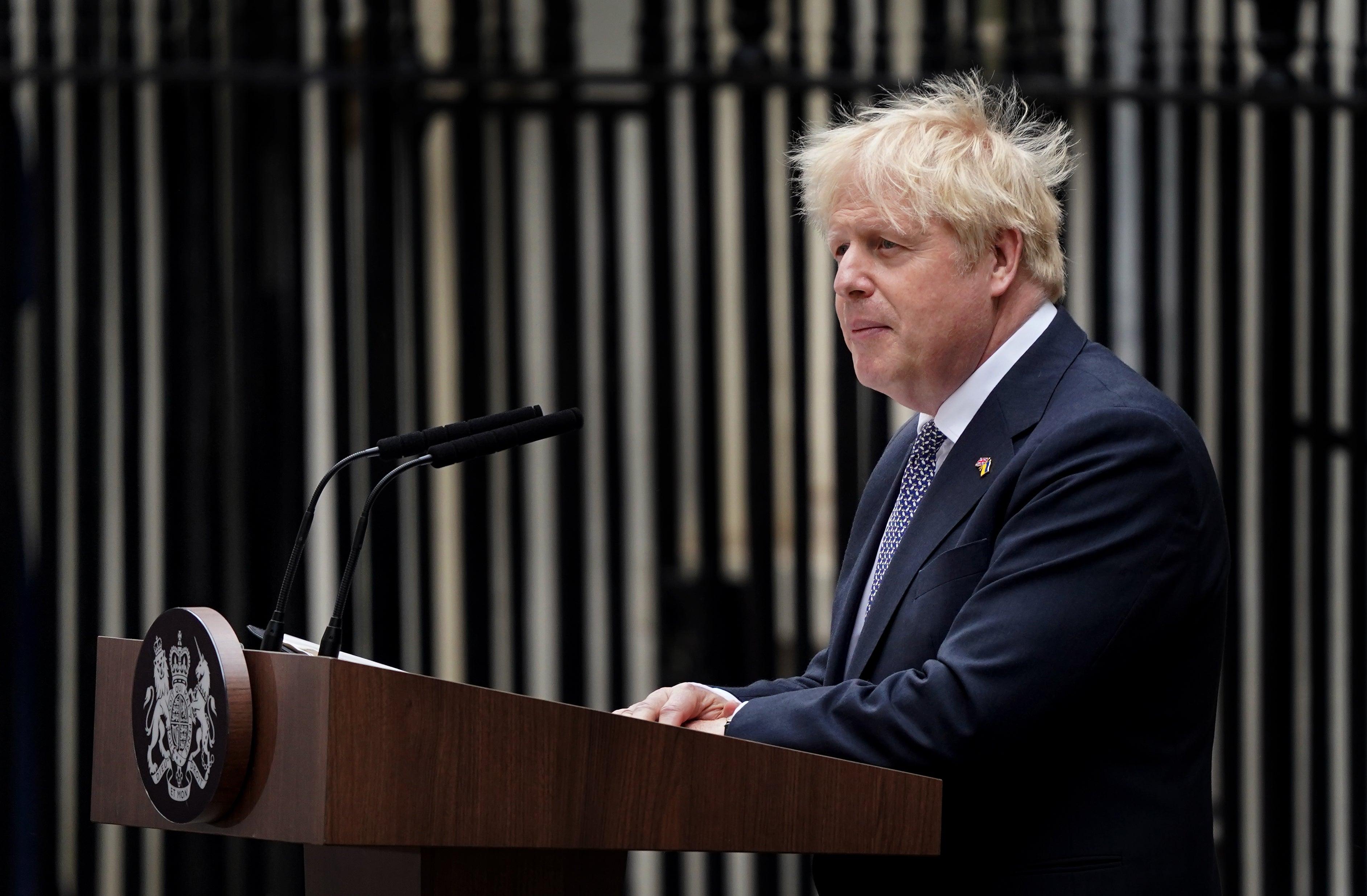More voters deserting Tories due to energy bills than Boris Johnson, poll finds
Rising bills ‘elephant in the room’ in Tory contest dominated by Thatcherite economics and culture war issues

Your support helps us to tell the story
From reproductive rights to climate change to Big Tech, The Independent is on the ground when the story is developing. Whether it's investigating the financials of Elon Musk's pro-Trump PAC or producing our latest documentary, 'The A Word', which shines a light on the American women fighting for reproductive rights, we know how important it is to parse out the facts from the messaging.
At such a critical moment in US history, we need reporters on the ground. Your donation allows us to keep sending journalists to speak to both sides of the story.
The Independent is trusted by Americans across the entire political spectrum. And unlike many other quality news outlets, we choose not to lock Americans out of our reporting and analysis with paywalls. We believe quality journalism should be available to everyone, paid for by those who can afford it.
Your support makes all the difference.More voters are deserting the Conservative party because of inaction on cost of living and rising bills than animosity towards Boris Johnson, a new poll has found.
The findings, seen by The Independent, come after Tory MPs forced the prime minister out of office, believing he had become an electoral liability.
But a survey of wavering Tories suggests that it is rising energy bills more than Mr Johnson himself who is most to blame – though he is also a significant drag on support.
The findings, by ComRes, will come as a blow for Tory MPs who hope that a change of leader will revive the party’s fortunes. It has lost significant support, including in the so-called “red wall”, with national polls showing it consistently behind Labour since the autumn.
The party now risks losing seats in the south of England to the Liberal Democrats, who have won a series of stunning by-election victories, including in previously save Tory seats.
ComRes interviewed a weighted sample of 2,208 UK adults between 8 and 10 July 2022, just after Mr Johnson resigned.
Asked whether they were more or less likely to vote Conservative than this time last year, 43 per cent said yes, with 38 per cent saying they were no more or less likely to do so. 10 per cent said they were more likely.
Out of the Conservative voters who responded and said they were less likely, 26 per cent cited rising energy bills as their primary concern, ahead of 20 per cent who cited Boris Johnson personally and 14 per cent general corruption and sleaze.
Bills were far and away the main reason given in wavering Tories’top three concerns, cited by 54 per cent, ahead of 35 per cent Mr Johnson and 34 per cent corruption and sleaze.
The government has been criticised for not doing enough to control bills and prices of essentials, with the perception particularly damaging to frontrunner Rishi Sunak because of the former chancellor’s association with the economy.
Yet despite the energy price cap increasing by a record 54 per cent in April 2022, Tory leadership candidates have largely talked about tax cuts and culture war issues.
Bills are expected to rise substantially again in October. The chief executive of regulator Ofgem has said the price cap is likely to rise again in the autumn by another 40 per cent to around £2,800.
The House of Commons library says that more recent forecasts have put the likely increase in the region of £3,250. Fixed price deals in April averaged over £3,000.
Liberal Democrat Treasury spokesperson Sarah Olney said the cost of living and energy cap rise was “the elephant in the room” during the Tory leadership contest.
“That announcement will send a shiver down the spine of millions in the country who simply can’t afford energy bills of over £3,000 a year,” she said.
“Yet all we’ve heard from Conservative leadership candidates is bluster and nonsense to woo Conservative MPs. They have said absolutely nothing on how they plan to help people with energy bills.”
She added: “These candidates are out of touch and out of ideas. Frankly, this country is sick and tired of the Conservative party. They have no answers on the cost of living crisis and will fail to help struggling people through a tough winter of price hikes.”
Government help on the cost of living has been relatively modest compared to many of Britain’s neighbours. Mr Sunak initially announced a £200 energy bill loan in his budget, but increase this to a £400 grant this year. The grant will offset some of the cost increase of an annual energy bill.
Other countries such as Germany, Spain, Italy and France facing rising bills have offered free or very cheap public transport to offset rising costs, deployed subsidies to keep bills down, or introduced price controls at a wholesale level.
Join our commenting forum
Join thought-provoking conversations, follow other Independent readers and see their replies
Comments